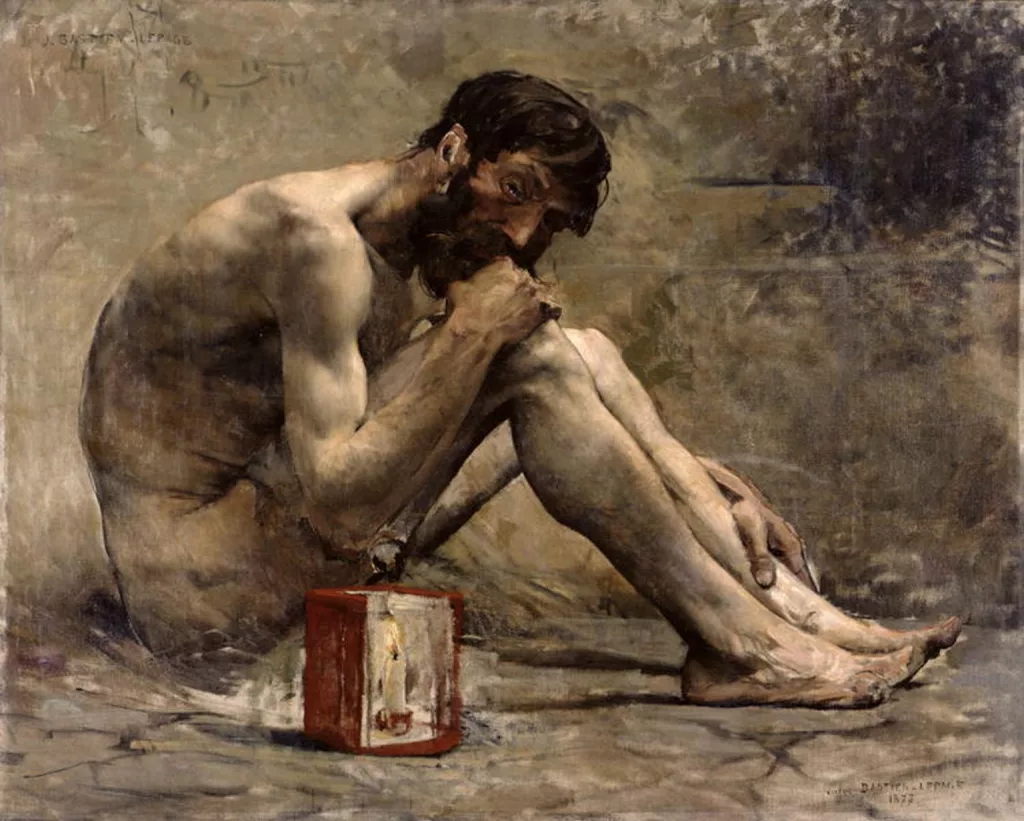Discovering the Enigmatic Diogenes, “The Dog” of Philosophy
In the annals of philosophy, few figures stand out as boldly as Diogenes, the renowned Cynic philosopher often nicknamed “The Dog.” A beacon of unconventional thinking, Diogenes’ life and philosophy challenged the norms of his time, leaving an indelible mark on ancient thought.
In this exploration, we venture into the depths of Diogenes’ life, his distinctive philosophy, and the legacy that endures to this day.
1. Early Life and Pioneering Influences
Diogenes’ journey began in the bustling port city of Sinope, around 412 or 404 BCE. Born into a family of modest means, his life took a turn when he encountered the teachings of Antisthenes, a dedicated student of Socrates.
Antisthenes’ philosophy heavily influenced Diogenes, sowing the seeds of his future skepticism and unorthodox beliefs.
This early exposure marked the genesis of Diogenes’ intellectual rebellion against the status quo.
Also Read: 15 Friedrich Nietzsche Quotes for the Insane

2. Embracing the Cynic Identity: A Lifestyle of Simplicity
Diogenes’ philosophy was grounded in Cynicism, a school of thought that eschewed the trappings of materialism and extolled the virtues of a simple, self-sufficient existence.
The Cynics advocated for living in harmony with nature, stripping away the layers of societal constructs to uncover the essence of humanity. Diogenes personified this philosophy, opting for a minimalist lifestyle devoid of unnecessary possessions and excess.
“I am called a dog because I fawn on those who give me anything, I yelp at those who refuse, and I set my teeth in rascals.” – Diogenes
3. A Defiant Gesture: Life in a Barrel
Diogenes’ contempt for materialism reached its zenith when he decided to make a ceramic jar his abode. This seemingly bizarre choice was a deliberate statement against the prevailing materialistic culture.
By residing in a barrel, he symbolized his detachment from the comforts coveted by many. This audacious move both confounded and compelled observers to reconsider the worth of their own possessions.
Also Read: Born to Philosophize, Forced to Work
4. Subversion of Norms: Teaching Through Provocation
Diogenes’ approach to philosophy was unconventional and provocative. He disrupted social conventions with his actions, such as eating in public and engaging in bodily functions openly. These shocking displays were his way of exposing the hypocrisy inherent in society’s norms and prompting introspection.
His biting wit and knack for turning societal expectations on their head challenged people to think beyond the superficial.
5. Philosophy Wrapped in Parables and Wit
Diogenes had an unmatched talent for conveying profound truths through anecdotes and humor. He used parables to distill complex ideas into relatable tales, leaving his audience with powerful insights.

One of his notable sayings underscores his emphasis on self-awareness: “When I look upon seamen, men of science and philosophers, man is the wisest of all beings; when I look upon priests and prophets, nothing is as contemptible.”
6. In Search of Authenticity: The Hunt for an Honest Man
Among Diogenes’ many exploits, his infamous search for an honest man is emblematic of his cynicism. Wielding a lantern in broad daylight, he sought an individual untouched by deceit.
This gesture was not merely a literal quest, but a metaphorical exploration of the rarity of true virtue in society. It highlighted his skepticism towards the moral fabric of the world around him.
“The foundation of every state is the education of its youth.” – Diogenes
7. A Face-Off with Greatness: Diogenes and Alexander
Even the formidable Alexander the Great was not immune to Diogenes‘ unyielding philosophy. When the conqueror offered him any favor, Diogenes simply requested that he step out of the sunlight.
This audacious response underscored Diogenes’ disregard for the trappings of power and his belief in the intrinsic equality of all humans, regardless of their status.
8. The Living Legacy of Diogenes: A Complex Heritage
Diogenes’ legacy was a mixture of reverence and controversy. While some hailed him as a counter-cultural hero, others viewed him as an eccentric nuisance. However, his ideas laid the groundwork for Stoicism and other philosophical movements that followed.
His advocacy for inner virtue over external success continues to resonate, influencing discussions on ethics and personal fulfillment.
9. Diogenes’ Echo in Modern Society
Diogenes’ teachings find a surprising relevance in today’s world. Amidst rampant consumerism and a constant quest for validation, his philosophy reminds us to seek authenticity and value inner contentment.
His iconoclastic approach to societal norms encourages us to question the motives behind our actions and the beliefs that shape our lives.

10. Conclusion: The Unforgettable Footprints of “The Dog”
Diogenes, the philosopher synonymous with defiance, has left a trail of inspiration and introspection across the pages of history. His rejection of excess, subversion of conventions, and profound insights continue to ignite discourse and reflection.
In a world where appearances often eclipse reality, his legacy nudges us to reevaluate our priorities and strive for lives that are genuinely fulfilling.
Frequently Asked Questions
Diogenes was an ancient Greek philosopher born around 412 or 404 BCE in Sinope. He is famed for his Cynic philosophy, emphasizing simplicity, virtue, and a rejection of societal norms.
Diogenes embraced Cynicism, a school of thought that promoted living in harmony with nature, rejecting materialism, and seeking self-sufficiency and virtue.
Diogenes earned the epithet “The Dog” due to his embrace of a minimalistic lifestyle and his belief that humans should live authentically, just as dogs do.
Diogenes engaged in unconventional acts like living in a barrel, publicly challenging social norms, and using humor to convey profound philosophical insights.
Diogenes wandered the streets during the day with a lantern, searching for an honest man. This symbolic gesture highlighted his skepticism towards genuine virtue in society.
When Alexander offered Diogenes a favor, the philosopher asked him to step aside and not block his sunlight, revealing his contempt for power and his belief in equality.
Diogenes’ emphasis on authenticity, simplicity, and inner virtue laid the groundwork for Stoicism and continues to influence modern discussions on ethics and well-being.
Diogenes’ critique of materialism and his call for authenticity offer valuable lessons in our consumer-driven society, encouraging us to reevaluate our values and seek genuine fulfillment.
References:
- Laertius, Diogenes. “Lives of Eminent Philosophers.”
- Branham, R. Bracht, and Marie-Odile Goulet-Cazé. “The Cynics: The Cynic Movement in Antiquity and Its Legacy.”
- Navia, Luis E. “Diogenes the Cynic: The War Against the World.”
- Hadot, Pierre. “The Inner Citadel: The Meditations of Marcus Aurelius.”
- Long, A. A. “Hellenistic Philosophy: Stoics, Epicureans, Sceptics.”
- Sherman, Nancy. “Stoic Warriors: The Ancient Philosophy Behind the Military Mind.”
- Various academic articles and reputable online resources on ancient philosophy and Diogenes.